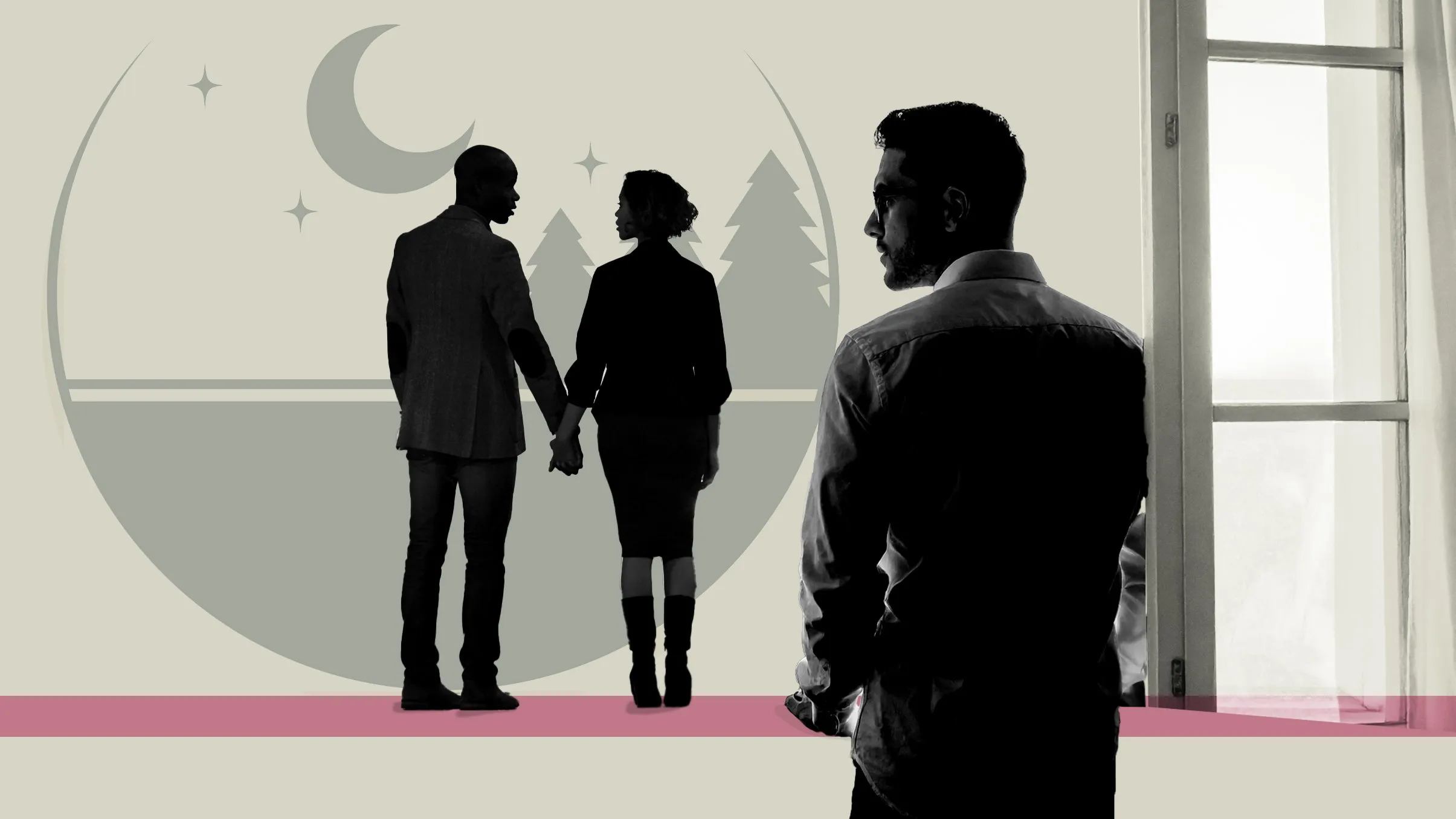By Alice Giddings
Copyright metro

There’s a biological reason we prefer people in relationships (Picture: Metro/Getty)
Be honest, have you ever met a best friend’s boyfriend or girlfriend for the first time and thought they were unbelievably hot?
Or perhaps you found yourself attracted to a stranger you met in a bar, who happens to be married.
You’d never go there, of course, but there’s something about that symbol of commitment that makes them seem all the more irresistible.
More likely than not you’ll end up feeling guilty for fancying someone who’s taken, but it turns out it’s not a questionable moral compass that has you feeling this way.
There’s actually a biological reason for why we find people who are in relationships attractive.
Known as ‘mate choice copying’, it’s an age old phenomenon that still has the ability to affect our dating lives.
When you’re in a relationship you’re more desirable because you’ve already been chosen by someone (Picture: Getty Images/Maskot)
What is mate choice copying?
‘Mate choice copying is defined as the probability of choosing a mate being increased by others’ choice of that person,’ psychologist Eloise Skinner tells Metro. ‘In other words, an individual copies another’s mate choices.’
Basically, if someone fancies that person, you’re more likely to fancy them because they appeal to more people than just you. It sounds reductive, but there’s biological proof.
‘It’s been documented in many species, from fish and birds to primates,’ relationship psychologist, Limor Gottlieb, explains to Metro.
‘In humans, it functions as a form of social proof: if a man has already been “chosen” by another woman, it signals he must have desirable qualities.’
As Limor says in her book, Primal Dating: ‘The quickest shortcut for women to evaluate a man’s worth is to find him in the company of other desirable women.’
Women are thought to be more susceptible to the phenomenon (Picture: Getty Images)
Are certain people more prone to mate choice copying?
While it applies to both men and women, Limor suggests that women are more susceptible to this phenomenon.
‘In our ancestral environment choosing a mate was a high-stakes decision, due to their high maternal investment – they invested more in children from pregnancy to gestation and years of child-rearing – so women looked for hidden qualities and cues like commitment, loyalty, provisioning, and intelligence, that aren’t obvious at a glance,’ she says.
On the other hand, men evolved to focus on visible fertility cues like youth and health, according to the expert.
‘That’s why female mate choice tends to be more socially influenced, while male mate choice is more visually calibrated.’
But your personality type also affects your susceptibility to this hardwiring.
Psychologist Eloise explains that people who tend to seek external support for decision-making and personal choices may rely on ‘mate choice copying’.
‘Younger people or those with less relationship experience may use it as a tool to solve the lack of information about a particular person’s suitability for a relationship,’ she shares.
More from the world of relationships:
The ‘frustrating’ sex dilemma that’s causing problems in Gen Z relationships
The date was amazing – until I felt liquid on my leg
The 7 most common reasons why couples break off an engagement
Is your first lesbian breakup really the worst you’ll ever go through?
I was my husband’s other woman — but he’d never cheat on me
Mate choice copying isn’t foolproof
Apart from the obvious moral downside of having to break up a relationship to pursue a potential match, this phenomenon comes with a litany of problems.
‘It helps speed up decision-making but it doesn’t guarantee compatibility,’ Limor says. ‘Someone may look desirable in public, yet not be a healthy long-term partner in private.
‘Lasting relationships need compatibility, shared values and commitment. Mate choice copying can open the door, but it won’t sustain a partnership.
‘Not to mention, if someone leaves a partner for you, there’s always the risk they’ll repeat that behaviour again.’
Mate poaching
When you try and break up a relationship to pursue someone, you become a ‘mate poacher’ (Picture: Getty Images)
Our society’s predisposition to monogamous relationships also complicates things, it’s frowned upon to interfere with someone else’s romantic connection.
If you were to act on mate choice copying, Limor explains it would actually become something else.
‘This is when it turns into “mate poaching”, which means actively trying to “steal” someone else’s partner,’ she says.
Alarmingly a fifth of new relationships begin this way, according to the expert, and there are certain qualities those who do it tend to have.
‘Those who engage in mate poaching score higher in narcissism, extraversion, unfaithfulness and openness to new experiences,’ the psychologist adds.
‘It tends to be a short-term mating strategy: when opportunities are limited or the potential rewards outweigh the risks, some individuals pursue attached partners as a way to maximise reproductive opportunities.’
Do you have a story to share?
Get in touch by emailing MetroLifestyleTeam@Metro.co.uk.



